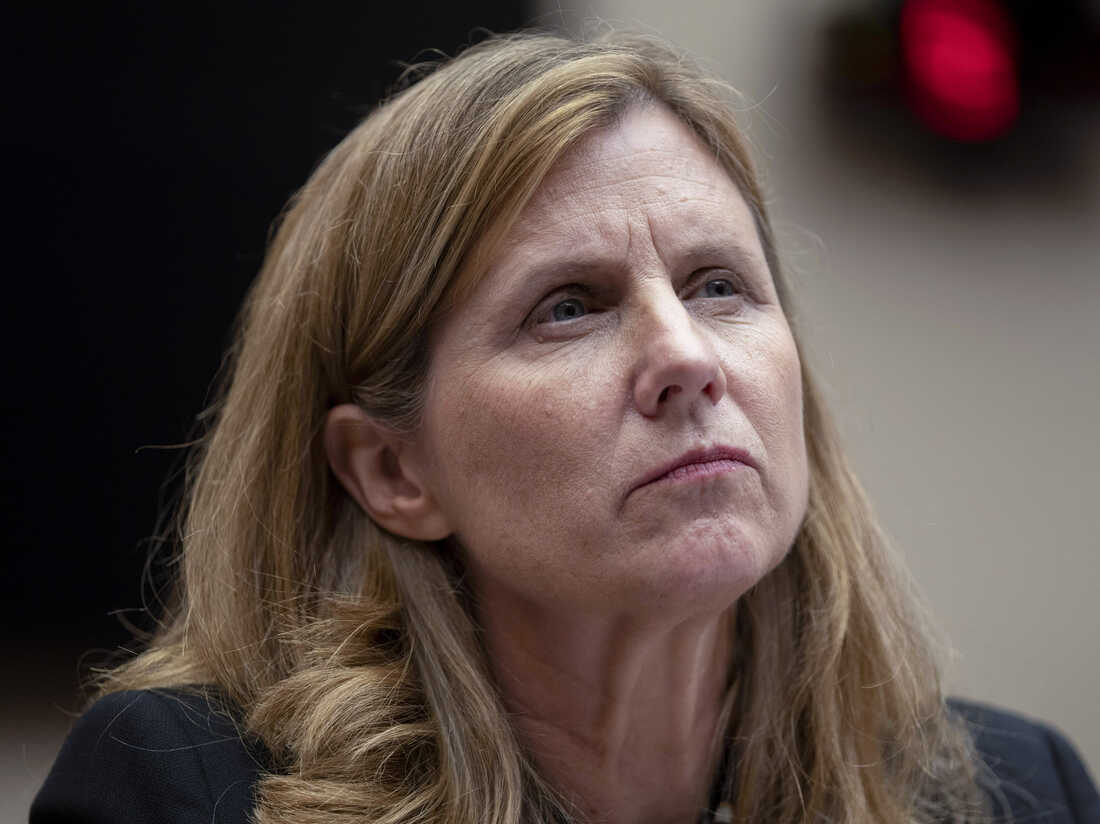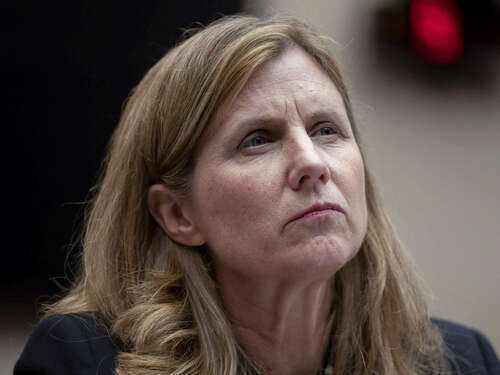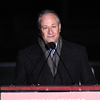
University of Pennsylvania President Liz Magill listens during a hearing of the House Committee on Education on Capitol Hill on Dec. 5.
Mark Schiefelbein/AP
hide caption
toggle caption
Mark Schiefelbein/AP

University of Pennsylvania President Liz Magill listens during a hearing of the House Committee on Education on Capitol Hill on Dec. 5.
Mark Schiefelbein/AP
Liz Magill, the president of the University of Pennsylvania, resigned on Saturday — just days after her congressional testimony on antisemitism drew fierce backlash from students, faculty and donors.
Scott L. Bok, the chair of the university’s board of trustees, announced the decision in a letter to the school community.
“It has been my privilege to serve as President of this remarkable institution. It has been an honor to work with our faculty, students, staff, alumni, and community members to advance Penn’s vital missions,” Magill said in a statement, according to Bok’s letter.
Magill will stay on as interim president until a new person is appointed, he added. Magill will also remain a tenured faculty member at Penn Carey Law.
The university will share details about interim leadership “in the coming days,” according to Bok.
On Wednesday, Magill and the presidents of Harvard and MIT testified before Congress about how they are protecting students from antisemitism on their campuses. Criticism quickly followed around how the university presidents answered the question of whether “calling for the genocide of Jews” would violate the university’s code of conduct.
After Magill’s comments, six members of Congress from Pennsylvania sent a letter to the school’s board of trustees calling for Magill’s resignation. Ross Stevens, a hedge fund manager, threatened to pull a $100 million donation from the University of Pennsylvania.
Concerns over Magill’s leadership has been mounting for months — even before the war between Israel and Hamas broke out. In September, Magill was criticized for an event on campus which had invited speakers with a history of antisemitic comments and behavior. The event, which focused on celebrating Palestinian culture, was also scheduled to end just before the beginning of Yom Kippur, a Jewish holiday.
NPR’s Sequoia Carrillo contributed reporting.




